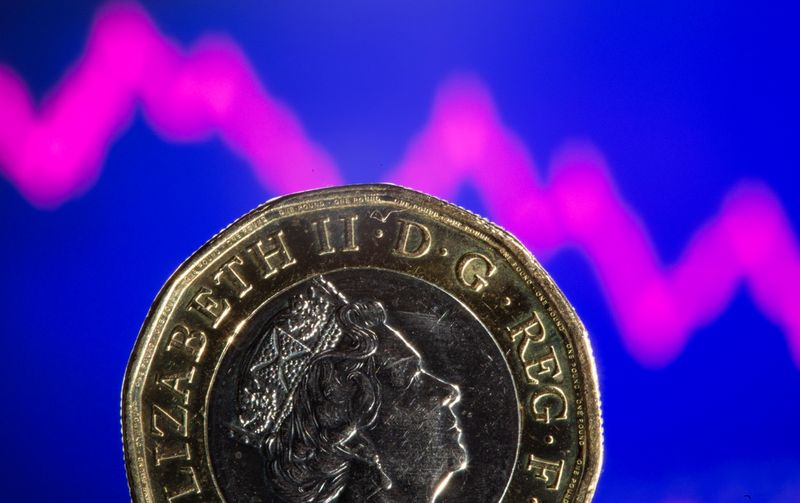By Stefano Rebaudo
(Reuters) -Sterling was pinned near 2021 lows against the U.S. dollar while it drifted higher against the euro on Tuesday thanks to a broadly sturdy greenback and growing expectations that the Bank of England will keep interest rates unchanged next week.
In a research note late on Monday, JP Morgan said it thinks the central bank will buy more time because the emergence of the Omicron coronavirus variant has introduced new uncertainty over the timing of the first tightening of monetary policy, which could now start as late as February.
Money markets are assigning a 54% probability of a 15 bps rate hike next week, down from nearly 70% probability two weeks ago.
The dollar index was steady and riskier currencies picked up as traders bet that the Omicron variant would not be as severe as previously expected.
Sterling was down 0.1% against the dollar after hitting a session's low at $1.321, not far from last week's 2021 low below $1.32.
Against the euro, the pound was up 0.15%, hitting its highest in almost a week at 84.895 pence.
If the Bank of England does end up raising interest rates on Dec. 16, it could trigger a squeeze on sterling short positions.
The number of gross pound short contracts by hedge funds has more than doubled to 90,998 since the central bank unexpectedly left rates unchanged last month, with net shorts rising to the highest level since October 2019 in the week ended Nov. 30.
ING analysts flagged a divergence on how the Federal Reserve and its British counterpart have addressed the Omicron risks.
“While the Federal Reserve sent some hawkish signals and still sounded quite focused on spiking inflation, the Bank of England saw even some of its more hawkish voices, like Michael Saunders, take a more cautious tone,” they said.
ING's analysts expect this divergence to keep a lid on the pound's upside in the run-up to the BoE meeting despite the "upbeat risk sentiment".

Britain's health minister on Monday said there is now community transmission of the Omicron variant across regions of England, but it is too early to tell if this will knock the country off its road to recovery.
Unicredit (MI:CRDI) analysts said that “COVID-19 concerns are also reducing the likelihood of a BoE rate hike next week while weighing on the GBP”.